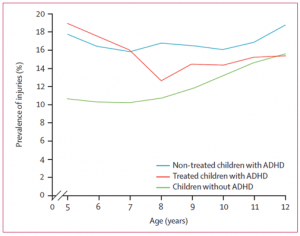

Griffin understands the difficulties associated with APD and the need for accessible treatment. Having been diagnosed with APD personally, Dr. Griffin is extremely passionate about recognizing and treating auditory processing disorders. We are excited to be able to offer these services at our clinic and look forward to being able to help more patients overcome the difficulties they may be experiencing. If you, or your child, are diagnosed with APD, therapy centered around current research may be recommended to strengthen the brain’s processing abilities of speech and language. Because APD can affect everyone differently, it is important to find the areas of weakness to provide a concise and appropriate therapy plan.

APD DISORDER IN ADULTS FULL
To effectively rule out or confirm an APD diagnosis, a full test battery must be performed. Signs and symptoms of APD can include speech delay, difficulty following verbal directions, appearing distracted, difficulty in noisy environments, difficulty spelling, reading comprehension issues, writing difficulty, organization of numbers and/or letters, localizing sound, following lengthy conversations, and/or disorganization. Auditory Processing Disorder (also known as Central Auditory Processing Disorder, or CAPD) is poor performance in one or more of these mechanisms, making it more difficult to "hear", or understand, speech.Īuditory Processing Disorders can only be diagnosed by an Audiologist, and therefore is often misdiagnosed or undiagnosed for a large percent of people who may exhibit symptoms. Auditory processing has four main mechanisms: detection, discrimination, identification, and comprehension. Auditory processing is how your brain interprets the sounds you hear every day so that you understand the sounds around you. To apply meaning to these sounds being heard, sounds must be further processed by your brain. Our ears collect the sounds around us to then be delivered to our brains.

When thinking about how we hear, it is important to know that we do not “hear” with our ears, we “hear” with our brain. Many may recognize, later in life, the struggles they may have had growing up. It is common for younger and middle-aged adults to notice symptoms of APD in specific listening situations such as classrooms, work, or social environments. APD affects approximately 2.5 million, or 20%, of school-aged children as well as adults of all ages. This could be a factor in "hidden hearing loss" cases. For many children and adults with APD, hearing test results are within normal limits and there is no diagnosis of hearing loss. This may also be a factor in "hidden hearing loss" cases.Īuditory Processing Disorder (APD) is a difficulty with one or more of these steps making it more difficult to understand speech. For many children (and adults) with APD, often hearing evaluation results are within normal limits and there is no diagnosis of hearing loss. It involves four major steps: detection, discrimination, identification, and comprehension. Auditory processing refers to how your brain interprets sounds into for meaningful communication.


 0 kommentar(er)
0 kommentar(er)
